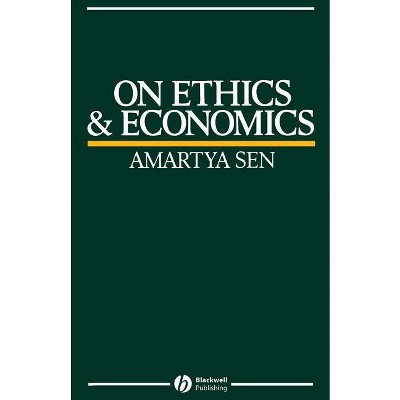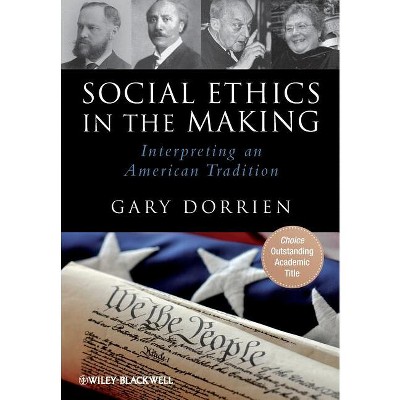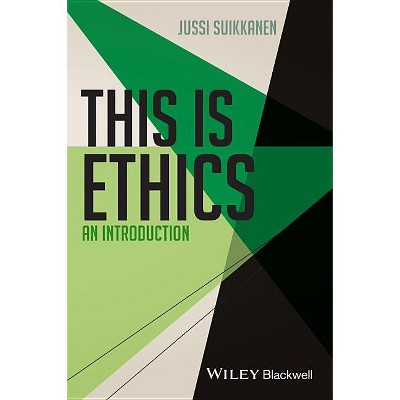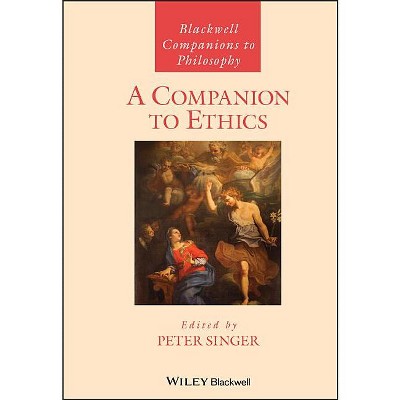Sponsored

Batman and Ethics - by Mark D White (Paperback)
In Stock
Sponsored
About this item
Highlights
- Batman has been one of the world's most beloved superheroes since his first appearance in Detective Comics #27 in 1939.
- About the Author: MARK D. WHITE is the chair of the Department of Philosophy at the College of Staten Island/CUNY, where he teaches courses in philosophy, economics, and law.
- 304 Pages
- Philosophy, Eastern
Description
About the Book
"Batman has been one of the world's most beloved superheroes since his first appearance in issue #27 of Detective Comics in 1939. Clad in his dark cowl and cape, he has captured the imagination of thousands of fans with his acrobatic fighting skills, high-tech crimefighting gadgets, and swift but often violent brand of justice. But why has he enjoyed such long-lived popularity as a character? And why have his actions caused debate among fans and philosophers? Based on four decades of comic book storylines, Batman and Ethics explores the concepts and contradictions of the ethical and moral code of the Dark Knight. From the logic behind his aversion to killing, to the implication of his use of torture, to the moral status of vigilantism in the pursuit of justice, Batman's ethical precepts are both compelling and deeply flawed. Starting with the character-defining work of Denny O'Neil and Neal Adams in the early 1970s, through the revolutionary era of the reimagined superhero comic in the 1980s and 1990s, to the new directions in the modern works of Grant Morrison, Ed Brubaker, Scott McDaniel, and ending with the release of the New 52, Batman and Ethics explores the developments of Batman's most troubling ethical dilemmas. It is a thought-provoking and entertaining journey through four decades of Batman's struggles and triumphs - a perfect way for readers to approach the complex questions of ethics and moral philosophy through one of the most popular canons in comic book history"--Book Synopsis
Batman has been one of the world's most beloved superheroes since his first appearance in Detective Comics #27 in 1939. Clad in his dark cowl and cape, he has captured the imagination of millions with his single-minded mission to create a better world for the people of Gotham City by fighting crime, making use of expert detective skills, high-tech crime-fighting gadgets, and an extensive network of sidekicks and partners. But why has this self-made hero enjoyed such enduring popularity? And why are his choices so often the subject of intense debate among his fans and philosophers alike?
Batman and Ethics goes behind the mask to shed new light on the complexities and contradictions of the Dark Knight's moral code. From the logic behind his aversion to killing to the moral status of vigilantism and his use of torture in pursuit of justice (or perhaps revenge), Batman's ethical precepts are compelling but often inconsistent and controversial. Philosopher and pop culture expert Mark D. White uses the tools of moral philosophy to track Batman's most striking ethical dilemmas and decisions across his most prominent storylines from the early 1970s through the launch of the New 52, and suggests how understanding the mercurial moral character of the caped crusader might help us reconcile our own.
A thought-provoking and entertaining journey through four decades of Batman's struggles and triumphs in time for the franchise's 80th anniversary, Batman and Ethics is a perfect gateway into the complex questions of moral philosophy through a focused character study of this most famous of fictional superheroes.
From the Back Cover
Batman has been one of the world's most beloved superheroes since his first appearance in Detective Comics #27 in 1939. Clad in his dark cowl and cape, he has captured the imagination of millions with his single-minded mission to create a better world for the people of Gotham City by fighting crime, making use of expert detective skills, high-tech crime-fighting gadgets, and an extensive network of sidekicks and partners. But why has this self-made hero enjoyed such enduring popularity? And why are his choices so often the subject of intense debate among his fans and philosophers alike?
Batman and Ethics goes behind the mask to shed new light on the complexities and contradictions of the Dark Knight's moral code. From the logic behind his aversion to killing to the moral status of vigilantism and his use of torture in pursuit of justice (or perhaps revenge), Batman's ethical precepts are compelling but often inconsistent and controversial. Philosopher and pop culture expert Mark D. White uses the tools of moral philosophy to track Batman's most striking ethical dilemmas and decisions across his most prominent storylines from the early 1970s through the launch of the New 52, and suggests how understanding the mercurial moral character of the caped crusader might help us reconcile our own.
A thought-provoking and entertaining journey through four decades of Batman's struggles and triumphs in time for the franchise's 80th anniversary, Batman and Ethics is a perfect gateway into the complex questions of moral philosophy through a focused character study of this most famous of fictional superheroes.
Review Quotes
"...a smart and fun-to-read book that uses three of the major ethical systems in western philosophy in order to explain why Batman does what he does...White writes in a clear, engaging style that moves along quickly. He's thoughtful, logical, and thorough without getting bogged down in overly-long philosophical explanations. There's also plenty of humor in the book, but it's never campy..."
Armond Boudreaux - A Clash of Heroes - Superheroes, philosophy, ethics, and politics
About the Author
MARK D. WHITE is the chair of the Department of Philosophy at the College of Staten Island/CUNY, where he teaches courses in philosophy, economics, and law. He is editor or co-editor of a number of books in the Blackwell Philosophy and Pop Culture series, including Batman and Philosophy (Wiley Blackwell, 2009) with Robert Arp, and is the author of The Virtues of Captain America (Wiley Blackwell, 2014). He has also written, edited, and co-edited a number of academic books in philosophy, economics, and law and has authored many articles and book chapters in these areas.
Shipping details
Return details
Trending Philosophy

















